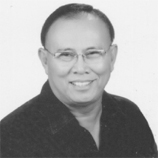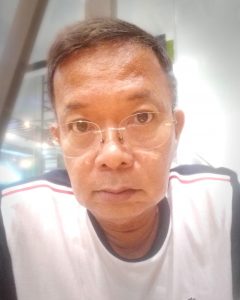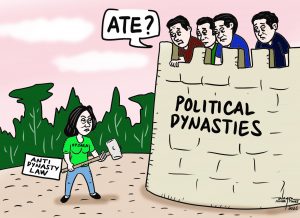With the recent unusual shakeup at the Davao City Police Office (DCPO), the constant bickering among local politicians, the exasperation of local residents with the worsening traffic condition and poor implementation of infrastructure projects, and the growing concern of business leaders that the city is slowly losing its competitive edge, what kind of life is in Davao now?
Is Davao City’s “Life is Here” branding still apt? I heard from several sources that our city is about to launch a new tagline, “Definitely Davao.” If that is the answer, what is the question?
Traffic? Definitely Davao. Three police city directors in a span of 13 hours? Definitely Davao. Crisis in public transportation? Definitely Davao. Least favorite city of the national government? Definitely Davao.
Although it may be true that the political dynamics between the Dutertes and the Marcoses have definitely affected Davao City’s relationship with the national government now, that cannot be made as the reason why our city is not performing as well as it should.
We must remember that Davao City has always been an independent community, not dependent on the national government. In fact, once upon a time, we were known as “opposition country,” often critical of the “Imperial Manila” government.
Historically, Davao has been relatively isolated from the rest of the Philippines. Before the Spanish colonizers came, Davao had a flourishing economy and a working political system. Our ancestors have been trading with other countries even before our islands have been named after the Spanish king.
During the American period, Davao was already considered a cosmopolitan and multicultural community and a “significant force in international trade” because of our abaca industry. We’re a frontier town of pioneers, innovators, and entrepreneurs.
Davao was pretty much ignored by the national government until it felt threatened by what it considered the overwhelming presence of the Japanese at that time and made Davao a chartered city in 1936 during the Commonwealth Period under President Manuel Quezon.
The development of Davao as a city has been primarily driven by its multicultural citizens. The national government barely did anything to make the city what it is today. Even its landmark pieces of local legislation and innovative programs mostly came from concerned citizens, business and civic leaders from civil society organizations. In fact, many laws and policies initiated by Davao City served as inspiration for several of the national laws we have in the country.
As then President Gloria Macapagal Arroyo said: “Davao City has always blazed the trail for the rest of the country.”
I believe what brought Rodrigo R. Duterte to the national spotlight and made him our country’s 16th President, the first from Mindanao, was a result of Davaoeños’ collective peace and development efforts through all those years. And he’s the first one to admit that.
Duterte benefited from Davaoeños’ diversity, Inclusiveness, entrepreneurship, innovation, collaboration, and active participation in local governance. That is why he refuses to accept any award or recognition for “doing his job” as our city mayor. He knows who should get the credit — the people of Davao. And he gives credit where credit is due.
It was Davao City’s shining example that Filipinos wanted for the entire country and they urged our longest serving city mayor to deliver the “Davao phenomenon” as our president.
But, of course, the Philippines is not Davao. Even when Duterte brought a great number of Davaoeños with him to the national capital to help him govern the entire country, he was not able to replicate the Davao experience for the rest of the country.
In the series of innovation workshops I facilitated with the new generation of entrepreneurs and innovators in the city, they all noted how Davao City is different from other places.
In almost all of the workshops, three critical factors were identified that made innovation possible in Davao City: (1) inclusive and collaborative citizens; (2) local government policy support; and (3) multicultural and cosmopolitan ecosystem.
National government, foreign investment, or any external factor did not even come up. It means the secret to Davao City’s success is from within. It is internally-generated and self-sustained.
Even though we have been locally governed by a Duterte since 1988 (except for a brief moment from 1998-2001), that was not considered a major factor for success by the young innovators in the city. Because we all know it takes a village (182 barangays, in our case) to build a city.
So should we worry about this Duterte versus Marcos thingy? We shouldn’t. When you find yourself about to panic and whine, read more about Davao’s history. We have been through worse and dealt with much bigger problems. And we not only survived, we thrived.
For as long as Davaoeños continue to be caring, trailblazing, actively participating, cooperating and collaborating with each other to come up with creative solutions to our social problems, life will always be here.



